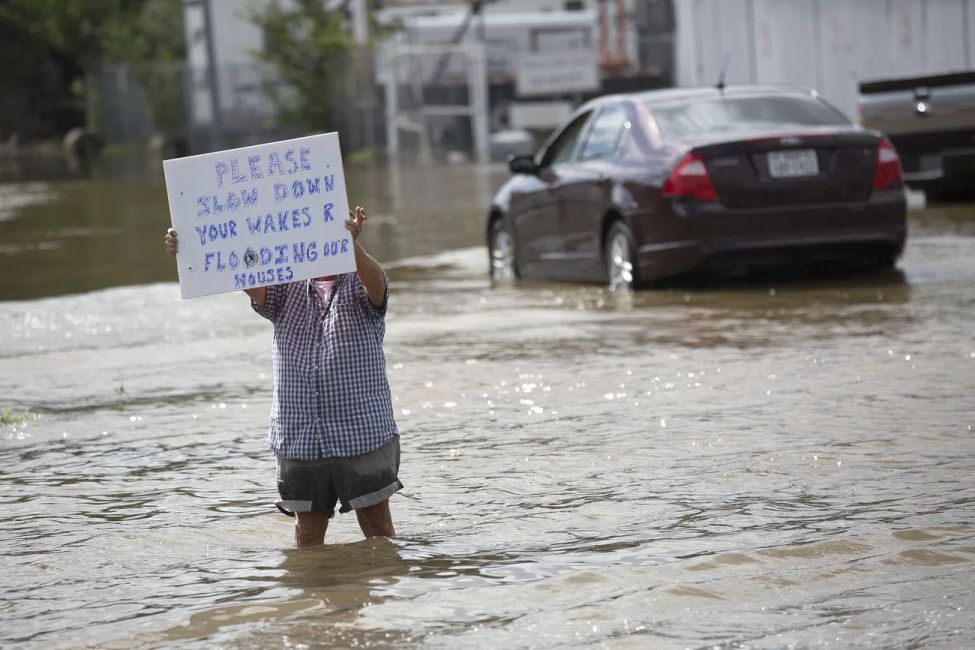The United Nations assessment coincided with the release of “the world’s most comprehensive roadmap of how to close the global gap in climate action across sectors.”
By Jessica Corbett. Published 11-14-2023 by Common Dreams

“The world is failing to get a grip on the climate crisis.”
That’s how United Nations Secretary-General António Guterres began his Tuesday remarks about a new U.N. Framework Convention on Climate Change (UNFCCC) report on nationally determined contributions (NDCs), or countries’ plans to meet the goals of the Paris agreement, including its 1.5°C temperature target.
The UNFCCC analysis “provides yet more evidence that the world remains massively off track to limiting global warming to 1.5°C and avoiding the worst of climate catastrophe,” said Guterres. “As the report shows, global ambition stagnated over the past year and national climate plans are strikingly misaligned with the science.”
Under current NDCs from the 195 Paris agreement parties, global greenhouse gas emissions are set to rise by nearly 9% by 2030, compared with 2010 levels, according to the analysis. While that’s a slight improvement on the 10.6% increase from last year’s assessment, it’s still nowhere near the cuts that experts say are needed.
The analysis of NDCs comes as scientists project that 2023 will be the hottest year in 125,000 years and just over two weeks before the U.N. Climate Change Conference (COP28) in Dubai, United Arab Emirates, a summit controversially led by Sultan Ahmed Al Jaber, CEO of the Abu Dhabi National Oil Company.
“As the reality of climate chaos pounds communities around the world—with ever fiercer floods, fires, and droughts—the chasm between need and action is more menacing than ever,” Guterres declared. “COP28 must be the place to urgently close the climate ambition gap.”
📢 Current national climate action plans remain insufficient to limit global temperature rise to 1.5°C.
— UN Climate Change (@UNFCCC) November 14, 2023
Much more action and ambition is needed. #COP28 must be the turning point where governments get on track.
Read more: https://t.co/q5TAXr45Lg pic.twitter.com/Q3Ki1V4Lw2
U.N. Climate Change Executive-Secretary Simon Stiell echoed Guterres’ call to action, stressing in a statement that the new assessment makes clear governments are merely “taking baby steps to avert the climate crisis.”
“It shows why governments must make bold strides forward at COP28 in Dubai, to get on track,” Stiell said. “This means COP28 must be a clear turning point. Governments must not only agree what stronger climate actions will be taken but also start showing exactly how to deliver them.”
The UNFCCC document was released on the same day as State of Climate Action 2023, which its crafters called “the world’s most comprehensive roadmap of how to close the global gap in climate action across sectors.”
Published under Systems Change Lab, the latter report highlights that only one of the dozens of indicators assessed, the share of electric vehicles in passenger car sales, is on track to meet its 2030 target.
As the publication details:
Recent rates of change for 41 of the 42 indicators across power, buildings, industry transport, forests and land, food and agriculture, technological carbon removal, and climate finance are not on track to reach their 1.5°C-aligned targets for 2030. Worryingly, 24 of those indicators are well off track, such that at least a twofold acceleration in recent rates of change will be required to achieve their 2030 targets. Another six indicators are heading in the wrong direction entirely. Within this subset of lagging indicators, the most recent year of data represents a concerning worsening relative to recent trends for three indicators, with significant setbacks in efforts to eliminate public financing for fossil fuels, dramatically reduce deforestation, and expand carbon pricing systems.
To get back on track, the international community must “dramatically increase growth in solar and wind power” while also phasing out “coal in electricity generation seven times faster—which is equivalent to retiring roughly 240 average-sized coal-fired power plants each year through 2030,” the report warns.
The publication also emphasizes the need for shifting to healthier, more sustainable diets eight times faster, increasing the coverage of rapid transit six times faster, reducing the annual rate of deforestation four times faster, and scaling up global climate finance by nearly $500 billion annually until 2030.
How can we close the gap in climate action to limit global warming to 1.5°C?
— WRI Climate (@WRIClimate) November 14, 2023
The #StateOfClimateAction 2023 offers a roadmap the world can follow to avoid irreversible climate impacts, while minimizing harms to biodiversity and food security: https://t.co/JV7w836e7U pic.twitter.com/Ldu78NI7dT
“Despite decades of dire warnings and wake-up calls, our leaders have largely failed to mobilize climate action anywhere near the pace and scale needed,” declared the report’s lead author, Sophie Boehm of the World Resources Institute (WRI). “Such delays leave us with very few routes to secure a livable future for all. There’s no time left to tinker at the edges. Instead, we need immediate, transformational changes across every single sector this decade.”
Every world leader is under pressure to ramp up efforts to cut emissions, including U.S. President Joe Biden, who on Tuesday received a letter from hundreds of scientists urging him to “increase the ambition of domestic climate action—including through accelerating a just and equitable clean energy transition, rejecting the expansion of new long-lived fossil fuel infrastructure, investing in climate resilience, and ramping up climate finance—while working toward the strongest possible agreement at COP28.”
The United States now ranks behind China as the top emitting country but still leads the world in cumulative planet-heating emissions. According to a U.S. government assessment released Tuesday, the nation is “warming faster than the global average,” and “the effects of human-caused climate change are already far-reaching and worsening across every region.”
This work is licensed under Creative Commons (CC BY-NC-ND 3.0)

